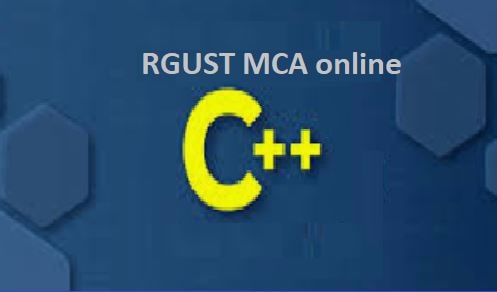
Top 25 Essential Concepts in C++ Language | Preparation Guide
Introduction
C++ is a powerful programming language that builds on C by adding object-oriented features. It is widely used for system programming, game development, and real-time simulations. This guide covers 25 fundamental concepts of C++, providing learners with a comprehensive understanding of the key features and best practices for developing robust C++ applications.
1. Variables and Data Types
Variables are used to store data that can be used and manipulated throughout a program. C++ supports various data types including int, float, char, double, and more complex types like classes and structures.
2. Operators
Operators are symbols that perform operations on variables and values. C++ includes arithmetic, relational, logical, bitwise, and assignment operators, as well as operator overloading.
3. Control Structures
Control structures such as if, else, while, for, and switch are used to control the flow of a program based on conditions and loops.
4. Functions
Functions are reusable blocks of code that perform a specific task. They can take parameters and return values, allowing for modular and maintainable code.
5. Classes and Objects
Classes are blueprints for creating objects, which are instances of classes. They encapsulate data and functions that operate on that data, following the principles of object-oriented programming.
6. Constructors and Destructors
Constructors are special member functions that initialize objects, while destructors clean up resources when objects are destroyed. They ensure proper management of resources.
7. Inheritance
Inheritance allows a class to inherit properties and behaviors from another class. It promotes code reuse and establishes a relationship between the base class and derived class.
8. Polymorphism
Polymorphism allows functions and operators to behave differently based on the context. It is achieved through function overloading, operator overloading, and virtual functions.
9. Encapsulation
Encapsulation is the concept of bundling data and methods that operate on that data within a single unit (class). It restricts direct access to some of an object's components.
10. Abstraction
Abstraction is the concept of hiding the complex implementation details and showing only the necessary features of an object. It helps in managing complexity and enhancing code readability.
11. Templates
Templates allow writing generic and reusable code. Function templates and class templates enable functions and classes to operate with generic types.
12. Exception Handling
Exception handling provides a way to handle runtime errors using try, catch, and throw blocks. It helps in creating robust and error-resistant programs.
13. Standard Template Library (STL)
The STL is a powerful library in C++ that provides generic classes and functions for data structures and algorithms. It includes containers, iterators, and algorithms.
14. Pointers
Pointers are variables that store memory addresses. They are powerful tools for dynamic memory management and working with arrays and functions.
15. References
References are alternative names for variables. They provide a way to pass large data structures to functions without copying, thus enhancing performance.
16. Dynamic Memory Allocation
Dynamic memory allocation functions such as new and delete are used to allocate and deallocate memory at runtime. They provide flexibility in managing memory.
17. Namespaces
Namespaces are used to organize code and prevent name conflicts by grouping entities like classes, objects, and functions under a name.
18. File I/O
File input and output (I/O) functions allow C++ programs to read from and write to files. They are essential for data storage and retrieval.
19. Preprocessors
Preprocessors are directives that provide instructions to the compiler before the actual compilation starts. Common directives include #include, #define, and #ifdef.
20. Operator Overloading
Operator overloading allows defining custom behavior for operators when they are used with user-defined types. It enhances code readability and usability.
21. Lambda Expressions
Lambda expressions are a concise way to define anonymous functions. They are used for short snippets of code that are passed as arguments to functions.
22. Multithreading
Multithreading allows a program to perform multiple tasks concurrently. The C++11 standard provides the thread library for creating and managing threads.
23. Smart Pointers
Smart pointers are objects that manage the lifetime of dynamically allocated memory. They provide automatic memory management and help prevent memory leaks.
24. Move Semantics
Move semantics allow resources to be transferred from one object to another, reducing the need for expensive deep copies. The move constructor and move assignment operator facilitate this.
25. RAII (Resource Acquisition Is Initialization)
RAII is a programming idiom that ensures resource management by tying resource acquisition to object lifetime. It is used to manage resources such as memory, file handles, and network connections.
Conclusion
Mastering these 25 fundamental concepts of C++ equips learners with the knowledge and skills necessary to build robust and efficient programs. C++'s versatility and efficiency make it a valuable language for system programming, game development, and performance-critical applications. By understanding and applying these core principles, developers can create scalable, maintainable, and high-performance applications, positioning themselves as valuable professionals in the software development industry.
Keywords: C++ language, object-oriented programming, variables, data types, pointers, dynamic memory allocation, classes, templates, multithreading, STL.








